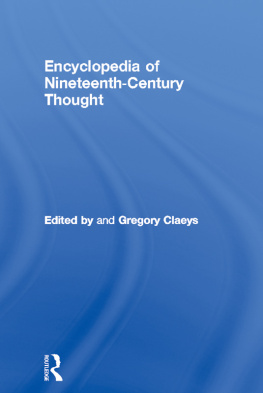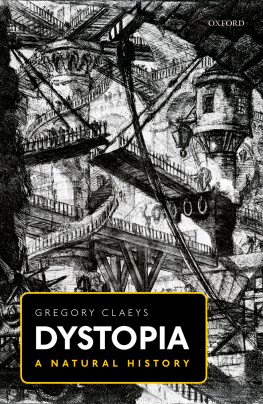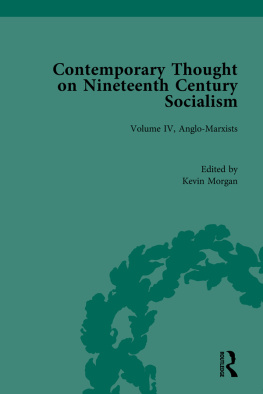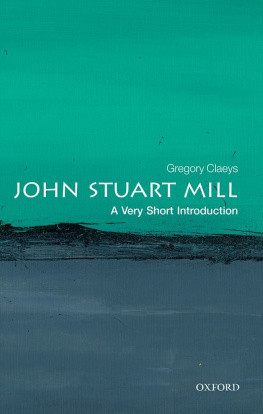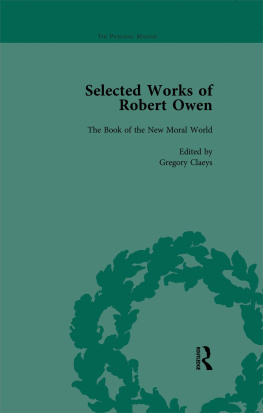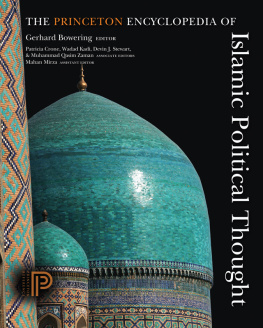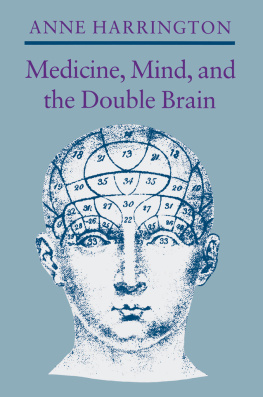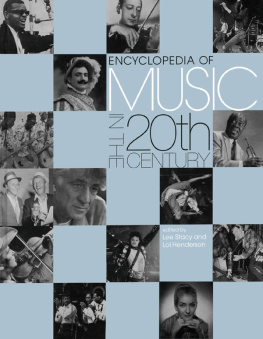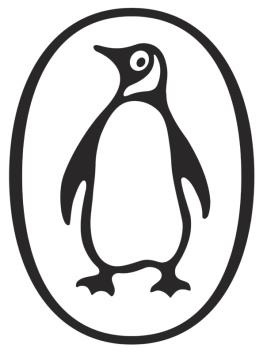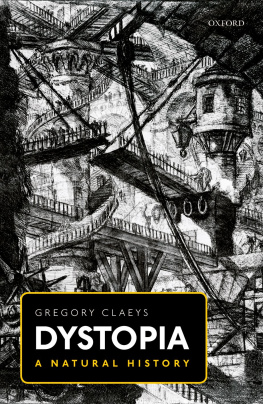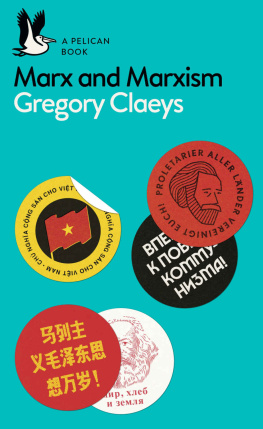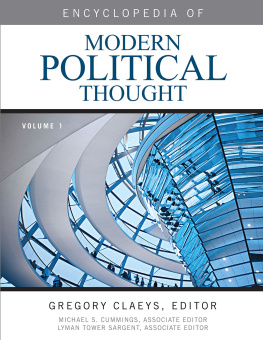Claeys - Encyclopedia of Nineteenth-Century thought
Here you can read online Claeys - Encyclopedia of Nineteenth-Century thought full text of the book (entire story) in english for free. Download pdf and epub, get meaning, cover and reviews about this ebook. City: London;New York, year: 2005, publisher: Routledge, genre: Religion. Description of the work, (preface) as well as reviews are available. Best literature library LitArk.com created for fans of good reading and offers a wide selection of genres:
Romance novel
Science fiction
Adventure
Detective
Science
History
Home and family
Prose
Art
Politics
Computer
Non-fiction
Religion
Business
Children
Humor
Choose a favorite category and find really read worthwhile books. Enjoy immersion in the world of imagination, feel the emotions of the characters or learn something new for yourself, make an fascinating discovery.
Encyclopedia of Nineteenth-Century thought: summary, description and annotation
We offer to read an annotation, description, summary or preface (depends on what the author of the book "Encyclopedia of Nineteenth-Century thought" wrote himself). If you haven't found the necessary information about the book — write in the comments, we will try to find it.
Claeys: author's other books
Who wrote Encyclopedia of Nineteenth-Century thought? Find out the surname, the name of the author of the book and a list of all author's works by series.
Encyclopedia of Nineteenth-Century thought — read online for free the complete book (whole text) full work
Below is the text of the book, divided by pages. System saving the place of the last page read, allows you to conveniently read the book "Encyclopedia of Nineteenth-Century thought" online for free, without having to search again every time where you left off. Put a bookmark, and you can go to the page where you finished reading at any time.
Font size:
Interval:
Bookmark:
Encyclopedia of Nineteenth-Century Thought
Encyclopedia of Nineteenth-Century Thought
Edited by Gregory Claeys

First published 2005
by Routledge
2 Park Square, Milton Park, Abingdon, Oxon OX14 4RN
Simultaneously published in the USA and Canada
by Routledge
270 Madison Ave., New York, NY 10016
Routledge is an imprint of the Taylor & Francis Group
Transferred to Digital Printing 2006
2005 Routledge Ltd
All rights reserved. No part of this book may be reprinted or reproduced or utilized in any form or by any electronic, mechanical, or other means, now known or hereafter invented, including photocopying and recording, or in any information storage or retrieval system, without permission in writing from the publishers.
British Library Cataloguing in Publication Data
A catalogue record for this book is available from the British Library
Library of Congress Cataloging in Publication Data
A catalog record for this book has been requested
ISBN 0-415-24419-6
Contents
Editors
Volume editor
Gregory Claeys
Professor of History,
Royal Holloway, University of London
Consultant editors
F.C. Beiser
Syracuse University
(Germany)
Christopher Duggan
University of Reading
(Southern and Eastern Europe)
Pamela Pilbeam
University of London
(France)
Chushichi Tsuzuki
Hitotsubashi University
(Japan and East Asia)
Contributors
Evelina Barbashina
F.C. Beiser
Fritz Breithaupt
Anthony Brewer
Robert Brown
Gavin Budge
Evgenia V. Cherkasova
Gregory Claeys
Gill Cockram
N.D. Daglish
Simon Dentith
Michael S. Dodson
Christopher Duggan
Peter Field
David Gladstone
Olaf Hansen
Malcolm Hardman
Jennifer Harrison
Clive E. Hill
Alan D. Hodder
H.S. Jones
Pierre Kerszberg
Alan R. King
Tim Kirk
Detmar Klein
D.M. Knight
Timothy Larsen
Oliver Leaman
Kyoo Lee
Michael Levin
Andre Liebich
Sandy Lovie
Elizabeth McCardell
Donal McCartney
Erin McKenna
Takashi Mitani
John Morrow
Kathryn Oliver Mills
John S. Partington
Pamela Pilbeam
Liz Potter
Simon J. Potter
John Pratt
Pamela Ralston
David Rose
Roland Sarti
David A. Shafer
Martin Simpson
Franz Solms-Laubach
Sue Stedman-Jones
Shannon Stimson
Dan Stone
C. Takeda
Sheila Thomas
Noel Thompson
Kathryn Tomasek
Lyman Tower Sargent
Keith Tribe
Chushichi Tsuzuki
Karine Varley
Georgios Varouxakis
Richard Whatmore
Introduction
The Wonderful Century: The Idea of the Nineteenth Century and its Critics
Viewed at its culmination, the nineteenth century appeared incontestably to have been the most extraordinary epoch that had ever occurred. In it, as Alfred Russel Wallace insisted in The Wonderful Century. Its Successes and its Failures (1898), humankind had progressed as far as in the whole of preceding human history. Principally this was a function of science and technology. It was an age richer in inventions than any other: steam-power, railways, gas illumination, electricity, refrigeration, the telegraph, the internal combustion engine, the phonograph, vaccination, anaesthetics, photography, radiation to name but a few. Comforts increasingly abounded, and those who could enjoy their benefits found their lives immeasurably enriched. The world shrank rapidly: travel and communication were vastly easier; telescopes reached out into the universe, while microscopes and scalpels divulged a new world within. Life-expectations were greatly extended. Perceptions were sharpened, and urbanity and sociability expanded. These changes were intimately bound up with the fact that Europeans, in particular, left the land in ever-greater numbers for the bright lights of ever-larger cities, where, if they were well off, their standard of living and life-chances advanced steadily, while if they were not, they might well decline. But for all classes the experience was astonishing, bewildering and provocative.
The epoch could not but be an age equally richer in ideas than any other, and self-consciously, from the outset, an age of transition, where the rest of human history became the old, to be swept away, along with most of its best-loved certainties, by the brave new world of modernity. To describe the new, and to appraise its development, required new ideas: revolution, social welfare, the international market and division of labour, race, democracy, equality, feminism, industrialism, rationalism, capitalism, Romanticism, utilitarianism. Linking the two great achievements, political and technological, of the epoch, were the nouveaux riches, the triumphalist middle class or bourgeoisie, throughout the civilized world enriching itself, promising affluence to others, and everywhere disdainful of both the idle, parasitic ruling landed elite above them, whose titles and privileges they coveted, and those among the hapless workers and peasants beneath them who were unwilling to enlist under the banner of the new order. Justifying their economic rights by the new political economy, for which capital accumulation was the raison dtre of modernity, and their political rights by the need to protect and foster this wealth, the middle classes increasingly embraced a secular, hedonistic, world-view in which the pursuit of pleasure became the highest aspiration of humankind, and modern standards of taste became increasingly those of the mass of consumers. Yet the new ideal met with fierce resistance from Romantics, some evangelicals, some conservatives, socialists and others, to whom a fragmented, atomized individualism coupled to an exploitative factory system and decaying, impoverished urban existence held out no hope of real human amelioration. It was, thus, a century of widespread strife, social and economic as well as intellectual, in which the concept of struggle would finally emerge as the master-metaphor of the epoch, and war fought with the newly invented machine-gun and tank, and in the air and under the water, would be seen by some as a desirable way of testing and improving national virtues. And it was the age in which the greatest utopian ideal ever conceived, an internationalist communist order, would by 1900 increasingly be seen as the sole alternative to capitalist exploitation, inequality and militarism.
Eight leading ideas held sway over the imagination of the period: revolution, nationalism, industrialism, liberalism, socialism, evolutionism, scientific and technical progress, and, finally, civilization, which binds many of the rest together.
The nineteenth centurys moment of initial self-definition was indisputably the French Revolution, with its sweeping assault on corrupt privilege and feudal unfreedom, and its bold assertion of equality, natural rights and personal freedom. Following close upon the American Revolution, the fall of the Bastille heralded an uncompromising assertion of popular sovereignty, and of national, ethnic and personal liberation. Man, Rousseau had said, had been bom free, but found himself everywhere in chains; this was the century, revolutionaries asserted, in which humanity was to be unshackled. But, though Florence Nightingale recalled an old legend that the nineteenth century is to be the century of women , the female sex largely remained enchained throughout it. Enslaved peoples regained their liberties by stages through the period, though not necessarily any recognition of their common or fundamental humanity, or security from conquest and bondage masquerading as the White Mans Burden possibly the most cynical concept of the epoch.
Next pageFont size:
Interval:
Bookmark:
Similar books «Encyclopedia of Nineteenth-Century thought»
Look at similar books to Encyclopedia of Nineteenth-Century thought. We have selected literature similar in name and meaning in the hope of providing readers with more options to find new, interesting, not yet read works.
Discussion, reviews of the book Encyclopedia of Nineteenth-Century thought and just readers' own opinions. Leave your comments, write what you think about the work, its meaning or the main characters. Specify what exactly you liked and what you didn't like, and why you think so.

